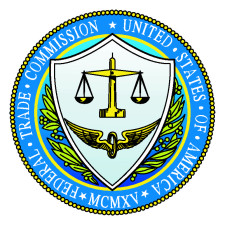As discussed in my last post, you may have to qualify some claim you make with a disclosure in order for it not to be a misleading claim. How to use disclosures to qualify information and avoid misleading your consumers is just as important as any other aspect of FTC law. In fact, this is Read More…
Blog
How To Make Advertising Claims That Comply With FTC Laws!
Any business (and affiliates and marketers) that engages in interstate commerce will be subject to federal laws. Interstate marketing and advertising practices are regulated by the Federal Trade Commission (“FTC”) under the FTC Act. Services and goods offered through the Internet are considered to be a “use in commerce” since the services are available to Read More…
Understanding COPPA Compliance Laws 101!
If your business operates a website that intends to or does target children as an audience, it must understand COPPA compliance! Any website that is directed toward children under the age of 13 or knowingly collects any information from children under 13 will need to comply with The Children’s Online Privacy Protection Act (COPPA). The Read More…
10 Concerns Affiliates Pose To Your Business!
Affiliate marketing can be particularly risky to your business in terms of liability exposure. There are a number of concerns, ranging from liability for affiliate spam under the CAN-SPAM Act, violations of disclosure responsibilities under the FTC Act and even affiliate trademark infringement. In fact, this list is quite expansive. However, it is possible for Read More…
Meta Tag & Keyword Advertising Legal Guidelines!
I summarized three cases in my last post that seem to indicate there really is no uniform standard regarding infringement for keyword advertising. One court might view some factors as more important than another court will. However, a few general principles have seemed to emerge from each of these cases (and others) that should be identified and Read More…
Online Reseller Keyword Advertising Liability 101!
Online reseller advertising trademark liability arises when advertisers or resellers either resell or facilitate the resale of a trademark owner’s branded products or when advertisers compare their products to their competitor’s products by referencing a protected trademark in their online ads. But, under the first sale doctrine, a trademark’s owners’ rights do not extend past the Read More…
Can Using Keywords Expose Your Business To Liability?
Keywords are words (or phrases) commonly used by individuals in search engine queries in order to search for information about a particular topic, or to locate providers of a particular good or service. Since customers look for a certain product or service by using a search engine, keyword advertising has become a growing marketing method Read More…
Why Using Auto-Responder Services Can Be A Bad Idea
The necessity of marketing your business is a hard fact. People need to know your business exists and what you have to offer. Maintaining contact with your customer base and/or prospects is an invaluable part of marketing that most successful Internet-based businesses employ. This is where auto-responder services can play an important role in the Read More…
Why Your Business’s Social Media Policy Is A Dud!
The importance of utilizing social media to help any business grow cannot be understated. But, there can be serious legal consequences for businesses when their employees or affiliates and marketers use any of the popular social media forums. This can hold true both when employees are acting on behalf of your business and when they Read More…
Multiple Senders & Forward To A Friend Can Pose Liability?
Multiple Senders Liability An obvious issue involves situations where a single email is actually sent by more than one party. A commercial e-mail can have more than one initiator or sender. Companies often engage third-party affiliate marketers to increase traffic to the company’s website. FTC has brought several claims against both companies whose product or service Read More…





